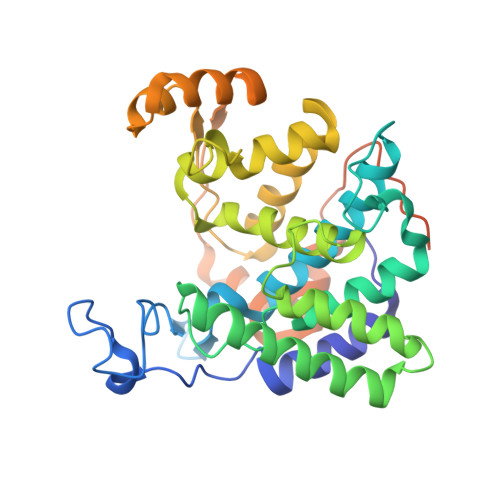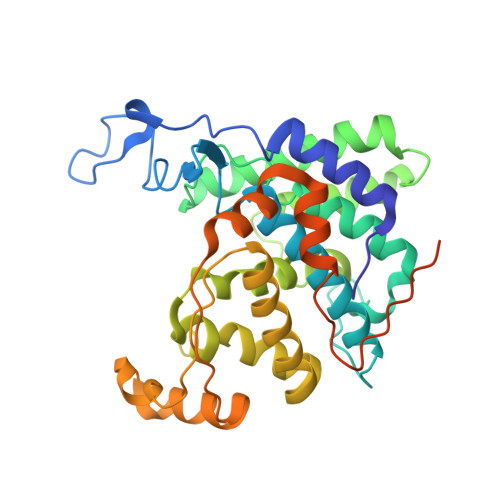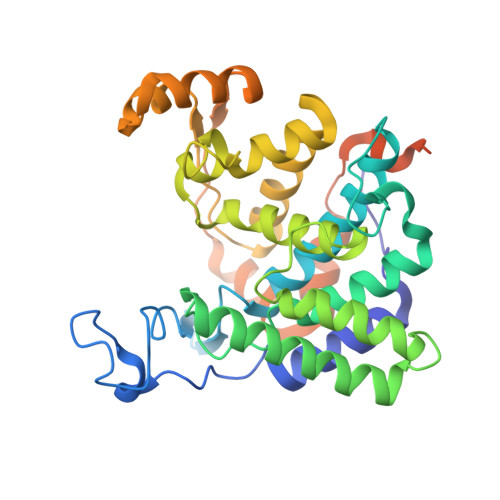Regulation of Phosphoribosyl-Linked Serine Ubiquitination by Deubiquitinases DupA and DupB.
Shin, D., Mukherjee, R., Liu, Y., Gonzalez, A., Bonn, F., Liu, Y., Rogov, V.V., Heinz, M., Stolz, A., Hummer, G., Dotsch, V., Luo, Z.Q., Bhogaraju, S., Dikic, I.(2020) Mol Cell 77: 164-179.e6
- PubMed: 31732457
- DOI: https://doi.org/10.1016/j.molcel.2019.10.019
- Primary Citation of Related Structures:
6RYA, 6RYB - PubMed Abstract:
The family of bacterial SidE enzymes catalyzes non-canonical phosphoribosyl-linked (PR) serine ubiquitination and promotes infectivity of Legionella pneumophila. Here, we describe identification of two bacterial effectors that reverse PR ubiquitination and are thus named deubiquitinases for PR ubiquitination (DUPs; DupA and DupB). Structural analyses revealed that DupA and SidE ubiquitin ligases harbor a highly homologous catalytic phosphodiesterase (PDE) domain. However, unlike SidE ubiquitin ligases, DupA displays increased affinity to PR-ubiquitinated substrates, which allows DupA to cleave PR ubiquitin from substrates. Interfering with DupA-ubiquitin binding switches its activity toward SidE-type ligase. Given the high affinity of DupA to PR-ubiquitinated substrates, we exploited a catalytically inactive DupA mutant to trap and identify more than 180 PR-ubiquitinated host proteins in Legionella-infected cells. Proteins involved in endoplasmic reticulum (ER) fragmentation and membrane recruitment to Legionella-containing vacuoles (LCV) emerged as major SidE targets. The global map of PR-ubiquitinated substrates provides critical insights into host-pathogen interactions during Legionella infection.
Organizational Affiliation:
Institute of Biochemistry II, Faculty of Medicine, Goethe University Frankfurt, Theodor-Stern-Kai 7, 60590 Frankfurt am Main, Germany; Buchmann Institute for Molecular Life Sciences, Goethe University Frankfurt, Max-von-Laue-Str. 15, 60438 Frankfurt am Main, Germany; Max Planck Institute of Biophysics, Max-von-Laue-Str. 3, 60438 Frankfurt am Main, Germany.
















